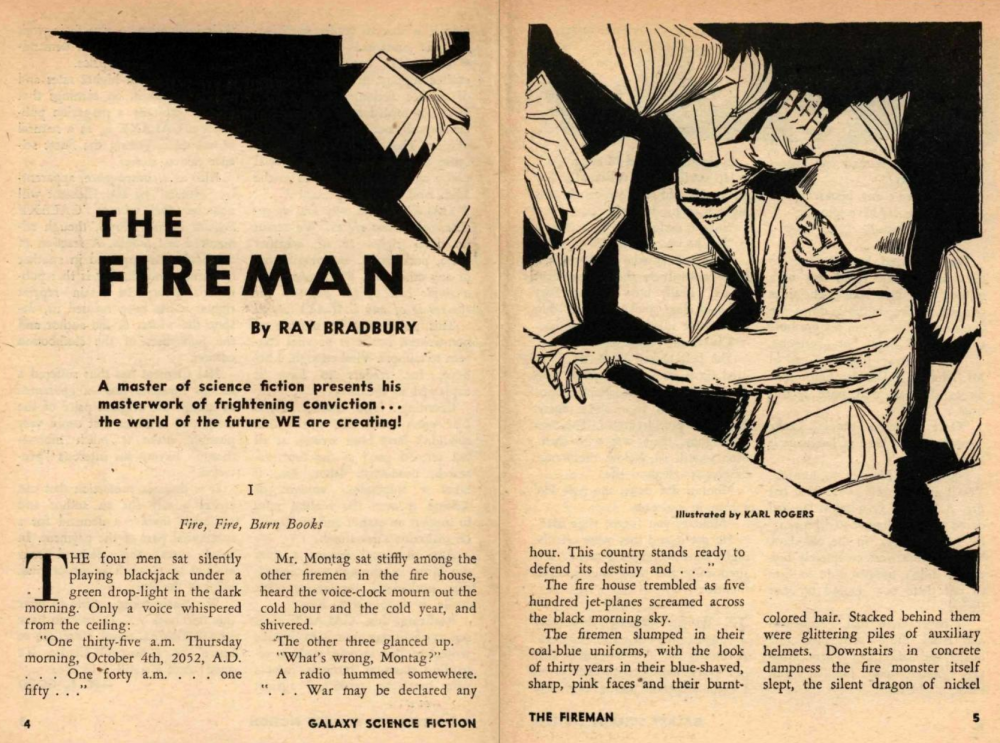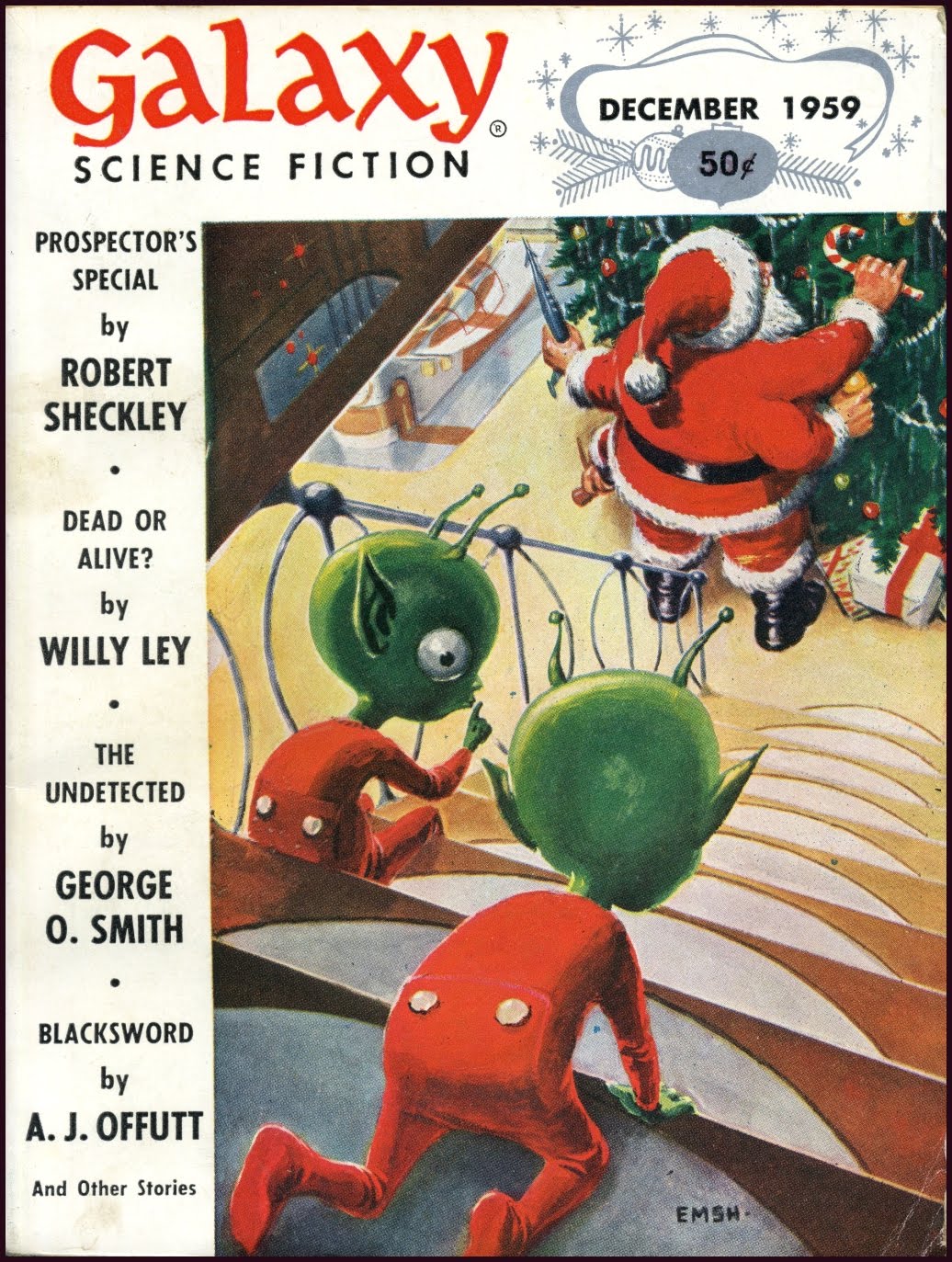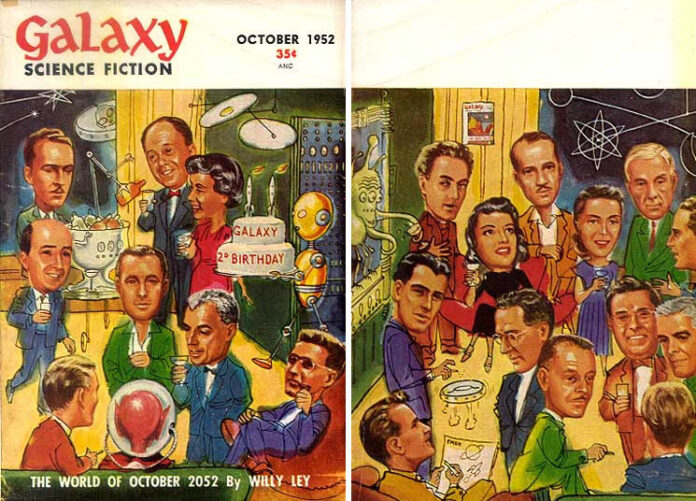Together with Astounding Science Fiction and The Magazineazine of Fantasy and Science Fiction, Galaxy Magazine was once one of the crucial important science fiction digests in Nineteen Fifties America. Ray Bradbury wrote for it–together with an early version of his masterpiece Fahrenheit 451–as did Robert A. Heinlein, Isaac Asimov, Frederik Pohl, Theodore Sturgeon, Twinewainer Smith, Jack Vance, and numerous others.
Now an excellently respectable collection of problems (356 in general) is available for your perusal at archive.org for absolutely free. It’s no longer complete but, nevertheless it’s shut.
When Galaxy seemed in October 1950, it promised one of those science fiction different from the gap operas of previous a long time. As an “annual file” written via publisher H.L. Gold professionalclaimed,
…other publishers concept the theory of be offeringing mature science fiction in an attractive, grownup format was once downproper amusingbig apple. They knew what bought–shapely feminine endomorphs with bronze bras, embattled male mesomorphs clad in muscle, and frightful alien monsters on the lookout for a human soul.
And whilst Astounding Science Fiction was once desirous about era–suited to an America that had a good timedamalestally modified since WWII–H.L. Gold’s Galaxy desirous about concepts, humor, satire, psychology and sociology. It additionally had some of the very best pay charges within the industake a look at, and introduced a few of its writers exclusive contracts. And the writers replyed in sort and followed their very own obsessions–even supposing Gold frequently pitched concepts.
(Ironically, although immersed in stories of interior and outer area, Gold was once an acute in the pastraphobe, and stayed in his asidement, communicating via telephone.)

After a wobbly get started graphics-wise, Gold employed Ed Emshwiller in 1951 to color covers, whose frequently humorous taste (e.g. this Christmas issue below) swimsuited the humor within the problem.
Confident of their stable of writers, Galaxy professionalduced the gainedderful beginningday cover on the best, featuring automotiveicatures of eachframe from Bradbury to Asimov. There’s additionally a information to look who’s who.

A sequence of editors–together with Frederik Pohl–took over from Gold after a automotive accident in 1961, and via 1977–8 years after Pohl’s departure–the magazineazine was once on its decline. There have been extra iterations, reprints, anthologies, and on-line versions, but the essential run is here. And the ones first ten years modified American science fiction forever, paving the way in which for experimalestal writers like Philip Ok. Dick and William Gibson.
It’s worthwhile to get started with the Ray Bradbury story (“The Fireman”) we advised you about, or Robert A. Heinlein’s “The Puppet.”
Related Content:
Input a Massive Archive of Amazing Stories, the Global’s First Science Fiction Magazineazine, Introduced in 1926
The Encyclopedia of Science Fiction: 17,500 Entries on All Issues Sci-Fi Are Now Unfastened On-line
Isaac Asimov’s Foundation Trilogy: Pay attention the 1973 Radio Dramatization
Sci-Fi Radio: Pay attention Radio Dramas of Sci-Fi Stories via Ray Bradbury, Philip Ok. Dick, Ursulos angeles Ok. LeGuin & Extra (1989)
X Minus One: Pay attention Classic Sci-Fi Radio Stories from Asimov, Heinlein, Bradbury & Dick
Ted Turbines is a looselance author at the arts who curhirely hosts the artist interview-based FunkZone Podcast and is the professionalducer of KCRW’s Curious Coast. You’ll additionally follow him on Twitter at @tedmills, learn his other arts writing at tedmills.com and/or watch his movies here.









